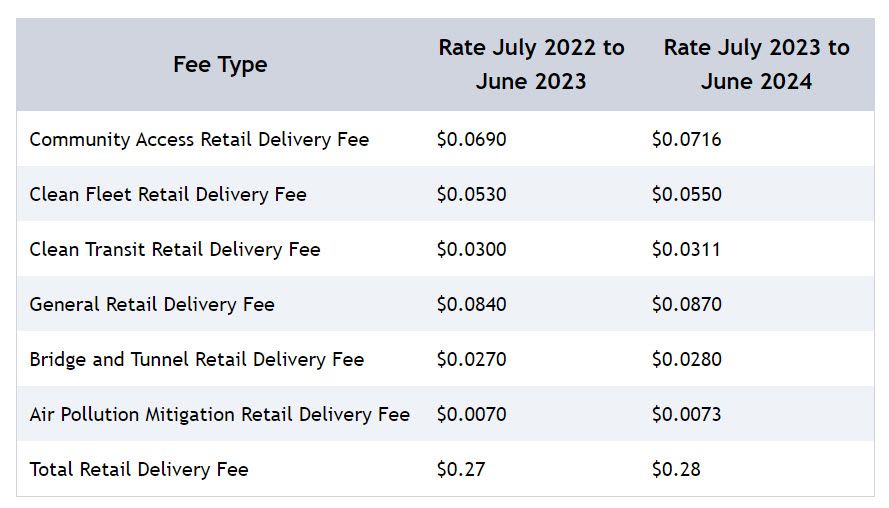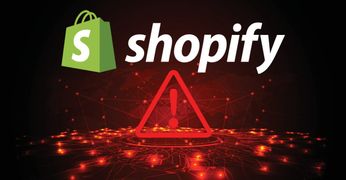Will Colorado Retail Delivery Fee Bill Impact Ecommerce?
UPDATE 7-3-23
A year after the Colorado Retail Delivery Fee Bill went into effect, the state is making adjustments to exempt retailers with less than $500,000 annual sales and allowing retailers to elect to pay the fee on behalf of their customers.
Senate Bill 23-143 exempts certain retailers from the retail delivery fee. The exemption applies to retailers whose sales of tangible personal property, commodities, or services in Colorado in the previous year totaled $500,000 or less.
If the business had no retail sales in Colorado in the previous year, the exemption applies until the first day of the month at least 90 days after its cumulative sales in Colorado in the current year exceed $500,000.
Beginning July 1, 2023, the new law also permits retailers to elect to pay the fee on behalf of their customers without separately stating the fee amount on a receipt or invoice or collecting it directly from the customer.
Marketplaces like eBay, Amazon, Etsy and more will still be required to collect the fee on all Colorado sales as marketplaces facilitators - unless of course they decide on their own to elect to pay they fee themselves as outlined above, which is highly unlikely.
The total delivery fee has also gone up $0.01 - from $0.27 to $0.28 as of July 1, 2023.

UPDATE 6-2-22
Community staff have confirmed eBay will be collecting and remitting the Colorado Retail Delivery fee as a marketplace facilitator, sellers will not need to make any changes on their end.

Thanks for the question. Our tax team is aware of these changes and have them included in our roadmap. Conveniently for sellers the liability and effort falls on eBay as the retailer and no changes will need to be made on the seller’s end.
Remember that convenience doesn't come without a cost - though again in this case it should be fairly minor.
I expect other marketplaces will fall in line as well, but always recommend checking with the marketplaces where you sell and a qualified tax professional just in case.
Sellers in the eBay community are discussing Colorado Senate Bill 21-260 which will assess a $0.27 retail delivery fee on all deliveries by motor vehicle to a location in Colorado with at least one item of tangible personal property subject to state sales or use tax effective July 1, 2022.

With the focus on the environmental impact of road traffic from delivery vehicles, this is clearly aimed squarely at companies like Amazon and DoorDash but it also broadly applies to any online mail orders as well.
Highlights
- Begins July 1, 2022
- Applies to all retail sales delivered by a motor vehicle to a location in Colorado
- Includes third-party deliveries
- $0.27 per retail sale for delivery
- Charged to the purchaser
- Collected by the retailer and remitted to CDOR
- Follows sales tax filing frequencies and due dates
- Filed on a separate return, form DR 1786
Those impacted: Retailers licensed to make sales in Colorado
Examples include, but are not limited to:
- Restaurants that deliver
- Grocery Stores that deliver
- Flower delivery services
- Sales that require delivery
- Furniture
- Appliances
- Electronics
- Online stores that ship orders
- Business-to-business retail sales (excluding wholesale sales)
As always, I recommend reading the entire text for yourself, but here are a few excerpts worth noting (emphasis mine):
About the Retail Delivery Fee
Effective July 1, 2022, Colorado imposes a retail delivery fee on all deliveries by motor vehicle to a location in Colorado with at least one item of tangible personal property subject to state sales or use tax.The retailer or marketplace facilitator that collects the sales or use tax on the tangible personal property sold and delivered, including delivery by a third party, is liable to collect and remit the retail delivery fee. Deliveries include when any taxable goods are mailed, shipped, or otherwise delivered by motor vehicle to a purchaser in Colorado...
...The retail delivery fee will be reported and paid on a new return, the DR 1786 form. The retail delivery fee is collected state-wide, does not need to be separated by jurisdiction, and is calculated per sale...
Retailers that make retail deliveries must show the total of the fees on the receipt or invoice as one item called “retail delivery fees”.
Based on the language of the bill, it's clear if there is a marketplace facilitator involved, they would be legally required to collect and remit this new delivery fee as well as regular sales tax.
That means if you sell exclusively seller fulfilled orders on marketplaces like eBay, Etsy, Amazon, etc. where the marketplace is collecting and remitting sales tax - you likely have nothing to worry about with this bill.
However, if you also operate a stand alone website and have enough sales to Colorado to have nexus and be required to collect and remit sales tax, you will also likely have to start collecting the delivery fee.

Americans for Prosperity, State Senator Jerry Sonnenberg and others have filed a lawsuit seeking to stop implementation of this bill as well.

Bottom line - regardless of what happens as that lawsuit winds its way through the system, if you run an ecommerce business that ships orders to Colorado, check your tax nexus status and make preparations accordingly.
The only other thing sellers need to consider is how this may impact their selling fees.
For example, since eBay applies the Final Value Fee and Ad Fees to the total including shipping and tax, presumably once the retail delivery fee is added in it will de facto increase the fees paid since the total will be more.
To be fair, that is likely to be a very small amount over time, but sellers should check their past sales history to Colorado to get an idea of the average increase they may face.
Other marketplaces handle fees on tax differently, so you'll want to check each place you sell to determine what the overall impact to your bottom line will be.
















